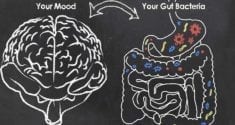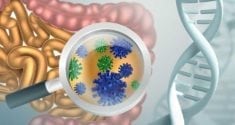New Research Expands Our Knowledge About the Benefits of Prebiotics
Could the benefits of prebiotics extend far beyond gut health? New research suggests that these supplements may have more beneficial effects on our health than previously known.
If you're like millions of Americans, you've probably already taken your daily probiotic. The benefits of these tiny capsules of bacteria have been known for years. Recently, many people have begun taking prebiotics as well. These supplements may have an immense impact on your health. While almost all people can reap the benefits of prebiotics, people with certain disorders may see even more positive effects.
What Are Prebiotics?
 Probiotics are the friendly bacteria that colonize healthy digestive tracts and help our bowels work smoothly. However, these bacteria do not live independently in a "bubble." Like all living creatures, they need food to live. This food is present in natural, more plant-based diets but may not be present in adequate quantities in the typical Western diet.
Probiotics are the friendly bacteria that colonize healthy digestive tracts and help our bowels work smoothly. However, these bacteria do not live independently in a "bubble." Like all living creatures, they need food to live. This food is present in natural, more plant-based diets but may not be present in adequate quantities in the typical Western diet.
This is the reason that many people take a prebiotic supplement in addition to a probiotic capsule. Prebiotics consist of the indigestible carbohydrates that feed the bacteria that make up a healthy gut microbiome. Rather than being absorbed, prebiotics remain in the gastrointestinal tract so they can feed the bacteria that we all need to achieve optimal health. Many traditional foods such as beans and legumes are full of these indigestible carbohydrates. However, modern people often need additional amounts of prebiotics in order to maintain healthy gut fauna.
The Benefits of Prebiotics for Health
Because our diets tend to be deficient in the nutrients needed to feed the "good" bacteria in our gastrointestinal tract, using prebiotics (along with probiotics) is helpful in maintaining gut microbiome balance. Without adequate food of the right kinds, probiotic bacteria cannot survive in the numbers that are required to maintain a healthy GI tract. The resulting lack of healthy bacteria can lead to a variety of health problems, such as Crohn's disease and ulcerative colitis. In addition, new research on the importance of a healthy gut microbiome to whole-body health suggests that disrupting the colony of beneficial flora in our guts may contribute to a variety of other diseases.
Exactly how can gut health be crucial to whole-body health? Your gastrointestinal tract is important in a variety of ways. It is the place where nutrients are converted to usable forms and absorbed, so many people without a healthy microbiome may suffer from nutrient deficiencies. In addition, your gut is where many serotonin receptors and other important biochemical receptors are located. These receptors in turn help to govern the hormonal balance of the rest of your body, in effect setting the tone for the rest of your health.
Prebiotics and Autoimmune Disease
One area where prebiotics show real benefits is in the realm of autoimmune disease. Probiotics and the prebiotics that feed them are already known to have positive effects on this class of diseases, which comprise one of the most common and debilitating causes of disability in the Western world. Recent studies have shown that there is a link between a dysfunctional GI tract and atopic dermatitis as well as other autoimmune skin conditions.
People with atopic dermatitis may especially see the benefits of prebiotics and probiotics. A recent meta-analysis found that people who take prebiotics in addition to probiotics are less likely to suffer from atopic dermatitis and are also more likely to have mild cases of the disease when it does occur. Those who suffer from the pain, itching and rash of this disorder may benefit from sorting out their gastrointestinal tracts. This is huge for people who wish to cure their atopic dermatitis once and for all, as the disorder is often resistant to established medical treatments.
Can Prebiotics Help With Stress?
 Probiotics have been shown to help reduce stress; however the benefits of prebiotics may extend to the very common problem of stress as well. Stress is almost ubiquitous in the United States, but it can also have extremely negative health effects. A recent study found that people who take both prebiotics and probiotics see their GI tracts and their sleep patterns bounce back quickly after stressful times. Researchers gave one set of rats prebiotics and then let another eat their usual diets. They then put these rats through biological stress. The rats that took the prebiotic supplements saw fewer physical effects of stress and also recovered more quickly.
Probiotics have been shown to help reduce stress; however the benefits of prebiotics may extend to the very common problem of stress as well. Stress is almost ubiquitous in the United States, but it can also have extremely negative health effects. A recent study found that people who take both prebiotics and probiotics see their GI tracts and their sleep patterns bounce back quickly after stressful times. Researchers gave one set of rats prebiotics and then let another eat their usual diets. They then put these rats through biological stress. The rats that took the prebiotic supplements saw fewer physical effects of stress and also recovered more quickly.
Could prebiotics help modern people to deal with stress without having negative effects? While this is but one small study, it appears to suggest that we may all benefit from taking a prebiotic supplement in addition to our live culture bacteria, or better yet a supplement that provides both prebiotics and probiotics in the same formula.
While the jury is still out on the benefits of prebiotics, they appear to have a variety of beneficial health effects without any known side effects. If you are looking for ways to support whole body health, taking a prebiotic supplement may be as healthy of a choice as eating good foods and getting enough exercise.




